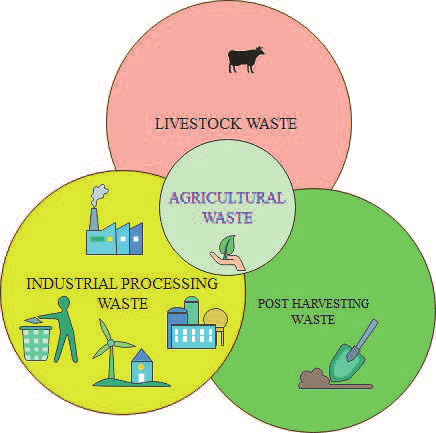
Sustainable Agriculture and Organic Waste Management
Introduction
Sustainable agriculture and organic waste management are crucial for preserving resources and ensuring a sustainable future. By adopting sustainable practices in agriculture and effectively managing organic waste, we can minimize environmental impact, enhance soil health, and promote long-term sustainability.
Historical Background
The concept of sustainable agriculture emerged in response to the detrimental effects of conventional farming methods on the environment and human health. It focuses on preserving natural resources, promoting biodiversity, and maintaining ecosystem balance.
Key Concepts and Definitions
Sustainable agriculture is a farming system that utilizes environmentally friendly, socially responsible, and economically viable techniques and practices. It emphasizes the conservation of soil, water, and energy, while prioritizing the health and well-being of farmers and consumers. Organic waste management refers to the proper handling and disposal of organic waste materials. Effective organic waste management is crucial in sustainable agriculture as it helps maintain soil fertility, reduce greenhouse gas emissions, and minimize reliance on synthetic fertilizers.
Main Discussion Points
Importance of sustainable agriculture in preserving natural resources
Sustainable agriculture plays a crucial role in preserving natural resources by minimizing soil erosion and water pollution. Practices such as conservation tillage and cover cropping reduce soil erosion, retain soil nutrients, and prevent sediment runoff into water bodies. Organic fertilizers and crop rotation enhance soil health, reduce nutrient leaching, and improve water quality.
Effective management of organic waste in sustainable agriculture
Composting organic waste benefits soil health in numerous ways. It breaks down into nutrient-rich humus, which improves soil structure, enhances moisture retention, and increases nutrient availability for plants. Anaerobic digestion, a process that converts organic waste into energy, offers a sustainable solution for waste management while generating renewable energy.
Integration of sustainable agriculture and organic waste management
Closed-loop systems that integrate sustainable agriculture and organic waste management are essential for promoting sustainability. By utilizing organic waste as compost or feedstock for anaerobic digestion, farmers can reduce reliance on external inputs. Proper waste management practices, such as recycling agricultural residues and minimizing food waste, are essential for maintaining a circular economy and achieving long-term sustainability in agriculture.
Case Studies or Examples
Real-world examples highlight the success of sustainable agriculture practices. For example, a farm in California implemented sustainable farming techniques, including cover cropping, crop rotation, and organic fertilization, resulting in improved soil health, increased crop yields, and reduced water usage. In Denmark, the integration of organic waste management into sustainable agriculture through anaerobic digestion of livestock manure has reduced greenhouse gas emissions and produced biogas for energy generation.
Current Trends or Developments
Current trends in sustainable agriculture and organic waste management include precision farming, regenerative agriculture, and the use of digital technologies. Precision farming optimizes resource use, minimizes waste, and increases productivity through data and technology. Regenerative agriculture aims to restore and enhance soil health through practices such as cover cropping and holistic grazing. Digital technologies enable farmers to make informed decisions regarding irrigation, nutrient management, and pest control.
Challenges or Controversies
Implementing sustainable agriculture and organic waste management faces challenges such as knowledge transfer, financial investment, and policy support for transitioning from conventional to sustainable practices. Controversies arise around certain practices, such as the use of genetically modified organisms (GMOs) and the impact of large-scale livestock production on the environment. Balancing food production with environmental conservation remains a key challenge in achieving sustainable agriculture globally.
Future Outlook
The future of sustainable agriculture and organic waste management holds immense potential for innovation and technological advancements. Emerging technologies, such as vertical farming, hydroponics, and biochar production, offer promising solutions to increase productivity while minimizing environmental impact. The integration of artificial intelligence and machine learning in agriculture can optimize resource use and enhance decision-making for sustainable farming practices.
Conclusion
Sustainable agriculture and organic waste management are vital for preserving resources and ensuring a sustainable future. By adopting sustainable practices, we can reduce environmental degradation, enhance soil health, and promote long-term sustainability in agriculture. The case studies, current trends, challenges, and future outlook discussed in this article emphasize the significance of sustainable agriculture and organic waste management in achieving a more sustainable and resilient food system.
References
Smith, S., Cavigelli, M., & McCarty, G. (2014). Organic Agriculture, Soil Health, and Food Quality: Considering Possible Links. Advances in Agronomy, 129-157.
Møller, H. B., Sommer, S. G., & Ahring, B. K. (2018). Biogas Plants: Sustainable Organic Waste Management and Energy Production. Waste and Biomass Valorization, 9(5), 919-940.
Pretty, J. (2008). Agricultural Sustainability: Concepts, Principles, and Evidence. Philosophical Transactions of the Royal Society B: Biological Sciences, 363(1491), 447-465.
Lal, R. (2015). Restoring Soil Quality to Mitigate Soil Degradation. Sustainability, 7(5), 5875-5895.